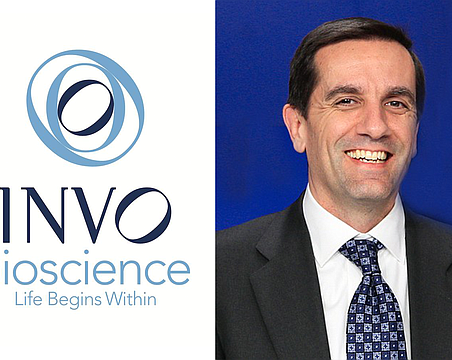Executive Summary
Company. Rock Creek Pharmaceuticals Industry. Drug development, medicine Key. Patience is key when trying to grow a drug development company.
It was sometime in 2012, at a dinner event inside the Harvard Club in New York City when onetime U.S. Navy fighter pilot and instructor Ted Jenkins met Dr. Michael Mullan.
A doctor and Ph.D., Mullan is a world-renowned expert on Alzheimer's disease. At the time Mullan was CEO and president of the Roskamp Institute, a Manatee County-based nonprofit that studies and treats diseases of the mind. Mullan has multiple patents in neurological disorder research, and has co-written more than 200 papers on the topic.
The pair developed a friendship that night in New York that has since led to a career shift for Mullan. He now runs a drug development company — a notoriously tough field where many businesses are long on promise and short on financial results. One of the company's ultimate goals is to create a topical ointment that could treat psoriasis, eczema and other skin conditions.
“We believe there is an unmet need here,” says the British-born Mullan. “This is where we think we can develop the biological characteristics of the drug. But it's hard to be a drug company.”
Some of that hardness comes from the obvious, like strict government regulations, Byzantine bureaucracies and, of course, high research costs and high failure rates. On average, it takes $1 billion and 15 years to take a drug from idea to market in the United States, according to several pharmaceutical organizations.
For Mullan and Jenkins, the task is made even harder from a blemish in the company's recent history. Says Jenkins: “We've had a lot of legacy issues to deal with.”
That goes back to when Mullan and Jenkins met. Back then Jenkins, who traded in flying F-14s for Wall Street and a business career, ran investor relations for a Virginia company, Star Scientific. The publicly traded firm, with a smoking cessation product called CigRx and an anti-inflammatory product that supports the immune system, Anatabloc, was about to implode.
The FDA, for one, tagged Star Scientific for inaccurate marketing on its core products. That's in spite of an active community of customers, especially with Anatabloc, who say the over-the-counter supplement, sold at GNC, was successful for a host of conditions. That ranges from rashes to faster recovery from injuries.
Things soon got even worse at Star Scientific, based in a Richmond, Va., suburb: The founder and chief executive, Jonnie Williams, allegedly gave at least $165,000 in gifts and loans, including golf outings and vacations, to then Virginia Gov. Bob McDonnell and his wife, Maureen McDonnell. Williams allegedly sought favorable treatment for his company and the products, and he later received immunity in a federal corruption trial against the McDonnells. (A jury convicted the McDonnells of corruption charges in September; appeals are pending.)
While Star Scientific was unraveling, Jenkins and the remaining company officials reached out to Mullan in late 2013 with a tantalizing job offer. The proposal: lead the business on a shift to become a drug company after years in supplements and nutraceuticals.
Mullan accepted the challenge. In June 2014 the company changed its name to Rock Creek Pharmaceuticals and relocated to Manatee County. Rock Creek, still publicly traded, leases space in the back of the building that houses the Roskamp Institute, where Mullan is a consultant but no longer a top executive. Manatee County officials approved $48,000 in performance-based incentives for new hires to aid Rock Creek in the move.
Prove it
A year into the transition, Rock Creek faces myriad challenges and hazards. “Everyone knows this is risky,” says Mullan. “We spend a lot of time thinking about how to de-risk it.”
The company has eight employees who all work out of the Roskamp Institute, down from a payroll of 28 people in three offices at one point when the company was Star Scientific. Mullan pragmatically says the challenges don't include the sordid episode from the company's past.
“Previous management did what they did and many others with the company didn't approve of it,” Mullan says. “But it's a new company now in so many ways. We have new goals.”
Goal No. 1 going forward is to prove the drugs the company is creating and testing actually work. The potential drugs center around Rock Creek's flagship pipeline compound,
Anatabine Citrate, a small molecule Mullan says is distinct from other anti-inflammatory drugs such as biologics and steroids. The compound is found naturally in eggplants, potatoes and green tomatoes, in addition to tobacco and tobacco smoke, say Rock Creek officials.
Anatabine Citrate is also a link to the company's past. It's essentially the same compound Star Scientific used to make CigRx and Anatabloc, the products that led the FDA to send the firm a warning letter. That letter, in part, accused Star Scientific of promoting the products as dietary supplements before Anatabine Citrate was properly investigated.
Beyond skin conditions, Rock Creek intends to target chronic inflammatory diseases, neurologic disorders and behavioral health with its drugs. One specific disease Rock Creek aims to combat in testing is multiple sclerosis.
“We have a unique compound that's distinctly different from traditional anti-inflammatory therapy,” says Jenkins, summarizing the Rock Creek elevator pitch. “There's an opportunity to develop a pipeline of drugs. Our goal is to develop the drugs and then get a partner in the pharmaceutical industry.”
That partner, say Rock Creek executives, would ideally be a company that could handle sales, marketing, manufacturing and other non-science tasks.
In phases
With that strategy in mind, Rock Creek took Anatabine Citrate to England. In February, the United Kingdom's version of the U.S. Food and Drug Administration, the Medicines Healthcare Products Regulatory Agency, approved a study of the compound.
But the trial in Great Britain hit a snag in April: Rock Creek board member Edward McDonnell, no relation to the former Virginia governor, resigned in a protest against the company's decision to test in the U.K. A onetime FDA official, McDonnell, in public filings, says Rock Creek should have waited on the trial because the FDA had a hold order on the products over “safety issues.”
Rock Creek, in a separate filing, defended the U.K. trials. Company officials cite the MHRA approval, in addition to the backing of an independent ethics committee.
The first part of the Anatabine Citrate trial in the U.K., says Jenkins, was completed with no safety concerns. The last two phases could be completed by the end of the third quarter, he adds.
Yet the issues that arose over the testing are more proof of Rock Creek's obstacles, where barriers to success can sometimes be a surprise. “From the time a drug goes from clinic tests to approval there are a lot of bodies on the side of the road,” Jenkins says. “You never know what's coming at you.”
Steep losses
Rock Creek lost a second official in June, when Christopher Chapman resigned. Chapman had been president for one year and on the company's board for nearly a decade. Chapman, according to a statement, left to pursue other matters. Mullan, already chairman and CEO, was named president to replace Chapman.
Another challenge the firm faces is capital — lack of it, particularly. On an annual basis, the losses are steep: a $22.8 million loss in 2012; $32.8 million in 2013; and $38.5 million last year. On a quarterly basis, the losses are improving: The firm lost $300,000 in the most recent first quarter, a dramatic improvement from a $9.8 million loss in the 2014 first quarter.
Jenkins attributes the shrinking loss to cost savings when the company switched strategies from supplements to drug development. After it trimmed the workforce by 20 employees, the company was able to post year-over-year savings in expenses and business insurance.
The funds the company had and lost in the last four years comes from private placements of stock, stock sales and about $10 million in revenues from sales of Anatabloc, says Jenkins.
But the more tests Rock Creek does on its products, the more capital it will need. That led the company to raise $3.7 million in a common stock offering in June, at a price of $2.25 a share.
Jenkins says even with that capital infusion, Rock Creek's need for money is constant. He and Mullan hope the company can hang on least through the middle of 2017, when they project clinical results of several trials could provide a big boost.
“This is a two-year story,” Jenkins says. “The data will either be there or it won't.”
At A Glance
Rock Creek Pharmaceuticals
Headquarters: Manatee County
CEO: Dr. Michael Mullan
Year founded: 1985; changed
name from Star Scientific to
Rock Creek in 2014
Employees: Eight
Symbol: RCPI
52-week range: $1.12-$13.25
Recent price: $1.18
Market cap: $12.35 million
Sources: Rock Creek Pharmaceuticals,
Google Finance






